Once the capital of the Abbasid Caliphate in the 8th century, Ar-Raqqah’s ancient ruins still whisper tales of empires that ruled here over 1,200 years ago. This resilient Syrian city along the Euphrates River is gradually reopening to intrepid travelers, offering a unique window into both ancient history and modern recovery.
IMPORTANT SAFETY NOTICE: Syria is currently considered a high-risk destination by many governments. Always check the most up-to-date travel advisories from your home country before making travel plans. This guide is for informational purposes and should be used alongside professional travel advice.
Best Time to Visit Ar-Raqqah
The stunning Euphrates River at sunset during spring, the ideal season to visit Ar-Raqqah
Ar-Raqqah experiences a hot desert climate with extreme temperature variations throughout the year. Planning your visit during the right season can make a significant difference in your experience.
Seasonal Weather Patterns
| Season | Months | Temperature | Conditions | Recommendation |
| Spring | March-May | 18-30°C (64-86°F) | Mild, occasional rain | Highly Recommended |
| Summer | June-August | 35-45°C (95-113°F) | Extremely hot, dry | Not Recommended |
| Autumn | September-November | 20-32°C (68-90°F) | Mild, pleasant | Highly Recommended |
| Winter | December-February | 5-15°C (41-59°F) | Cold, occasional rain | Acceptable |
Spring (March-May) and autumn (September-November) offer the most pleasant weather for exploring Ar-Raqqah. During these seasons, temperatures are mild, and you can comfortably visit outdoor sites without the extreme heat of summer.
Getting to Ar-Raqqah: Transportation and Access
Reaching Ar-Raqqah requires careful planning due to the current situation in Syria. Most travelers enter Syria through Damascus or neighboring countries like Lebanon, then arrange onward transportation.
Important: Travel to Ar-Raqqah currently requires special permits and is best arranged through licensed tour operators familiar with the region. Independent travel is not recommended due to security concerns and permit requirements.
Transportation Options
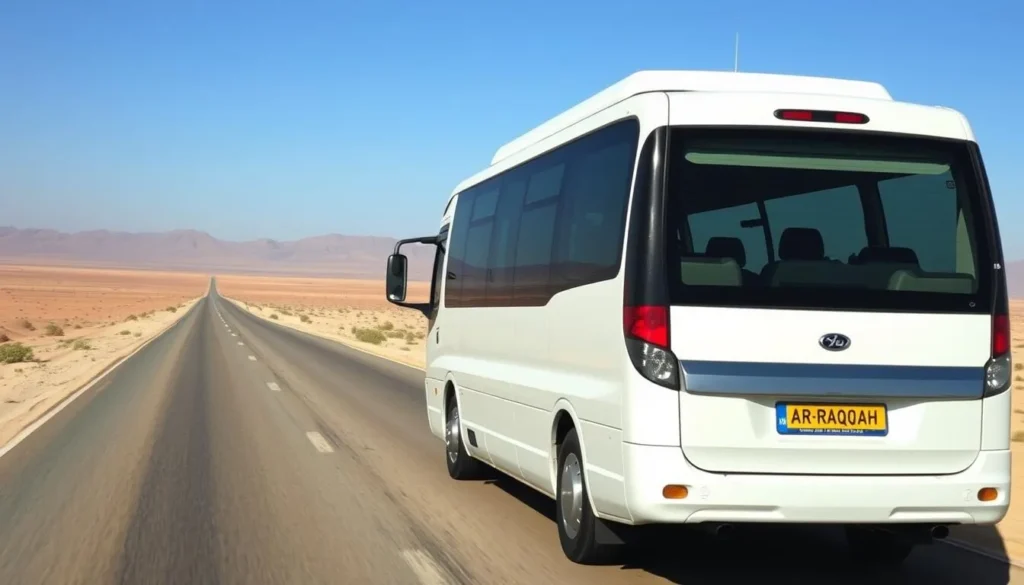
Organized tours provide the safest and most reliable transportation to Ar-Raqqah
- Guided Tours: The most secure option, providing necessary permits and transportation
- Private Transfers: Can be arranged through hotels or tour agencies in Damascus
- Public Transportation: Limited and not recommended for foreign visitors
Essential Safety Guidelines for Visitors
While Ar-Raqqah is recovering and gradually becoming more accessible to visitors, safety remains a primary concern. Following these guidelines will help ensure a secure visit.

Traveling with knowledgeable local guides is essential for safety in Ar-Raqqah
Do’s
- Travel with licensed, reputable guides
- Respect local customs and dress modestly
- Carry proper identification and permits
- Stay informed about the current situation
- Purchase comprehensive travel insurance
Don’ts
- Travel independently without proper guidance
- Photograph military or sensitive areas
- Discuss politics or sensitive topics publicly
- Venture into areas not cleared for visitors
- Ignore advice from local guides or authorities
Always maintain awareness of your surroundings and follow the guidance of local experts. The situation can change rapidly, so staying informed is crucial for a safe visit.
Exploring the Old City District
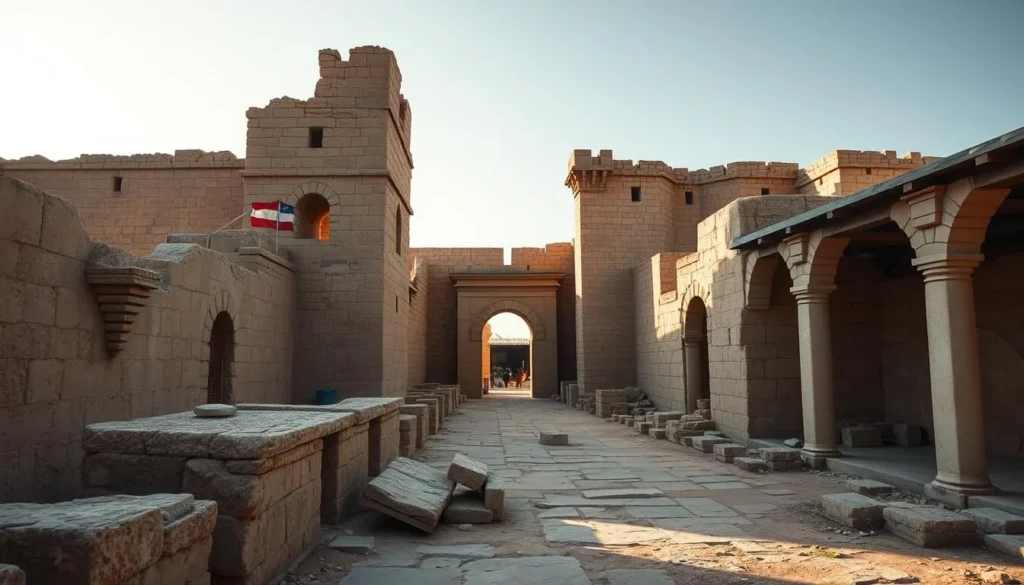
The historic Baghdad Gate in Ar-Raqqah’s Old City, dating back to the 8th century Abbasid period
The Old City of Ar-Raqqah holds the richest historical treasures of the region. Once enclosed by a massive wall with several gates, today you can still explore remarkable remnants of its glorious past as an Abbasid capital.
Notable Architecture and Historical Landmarks
Baghdad Gate
This well-preserved city gate dates back to the 8th century when Ar-Raqqah served as the Abbasid capital. Named after Baghdad (the empire’s main capital), it stands as a testament to the city’s historical importance as a center of power and culture.
Qasr al-Banat (Palace of the Ladies)
These partially preserved ruins are believed to have been either a palace or an administrative center during the Abbasid period. The remaining walls and architectural elements provide insight into the sophisticated building techniques of the era.
Great Mosque of Ar-Raqqah
Though damaged in recent conflicts, the historical mosque represents an important religious and cultural landmark in the city’s heritage.
The Euphrates River Experience

The mighty Euphrates River provides a peaceful retreat for locals and visitors alike
The Euphrates River has shaped life in Ar-Raqqah for millennia. As one of the defining rivers of ancient Mesopotamia, it continues to be the lifeblood of the region, offering both practical resources and recreational opportunities.
River Activities and Experiences
- Riverside Picnics: Join locals in the tradition of family gatherings along the riverbanks, especially during cooler evening hours
- Sunset Viewing: Experience breathtaking sunsets as the golden light reflects off the water
- Photography: Capture the timeless relationship between the city and the river that has sustained it for centuries
- Historical Context: Understand how the Euphrates shaped the development of civilization in this region
The river provides a peaceful contrast to the urban environment and offers a glimpse into the everyday life of Ar-Raqqah’s residents. It’s also a place where you can engage in conversations with locals who often gather here.
Jaabar Castle: A Hidden Gem
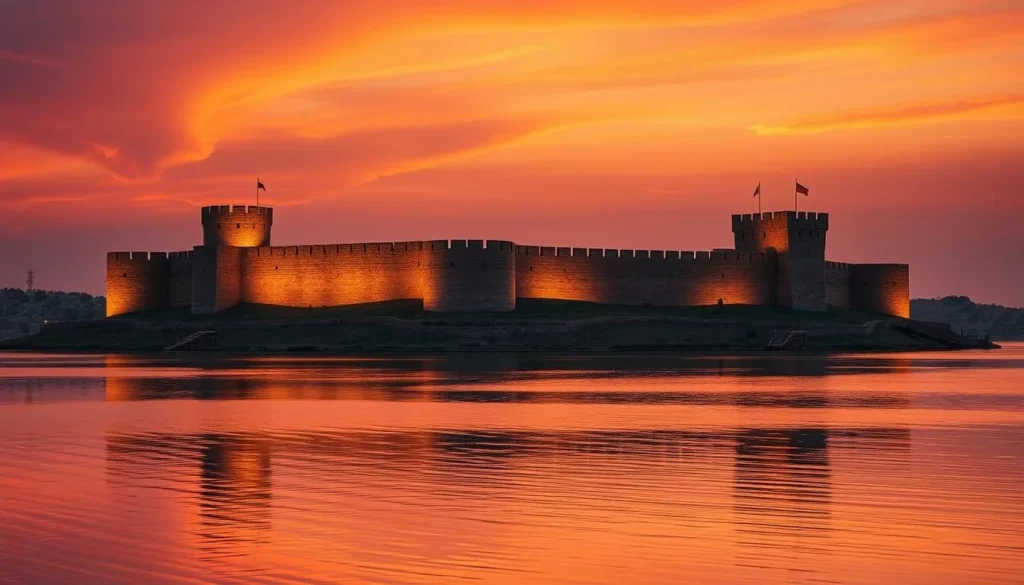
The stunning Jaabar Castle offers one of Syria’s most spectacular sunset views
Located near Ar-Raqqah, Jaabar Castle stands as one of the region’s most impressive historical sites. This medieval fortress overlooks what was previously known as Assad Lake, creating a dramatic setting that combines history with natural beauty.
Visiting Jaabar Castle
The castle is best visited in the late afternoon, allowing you to explore the fortress and then witness the spectacular sunset over the lake. The play of light on the ancient stones and water creates a magical atmosphere that photographers will particularly appreciate.
Visitor Tip: Arrive at least 2 hours before sunset to fully explore the castle grounds before enjoying the sunset views. Bring water and wear comfortable shoes as the terrain can be uneven.
The castle’s strategic position offers panoramic views of the surrounding landscape, providing insight into why this location was so important throughout history. It’s considered by many visitors to be one of the highlights of any trip to the Ar-Raqqah region.
Bustling Markets of Ar-Raqqah
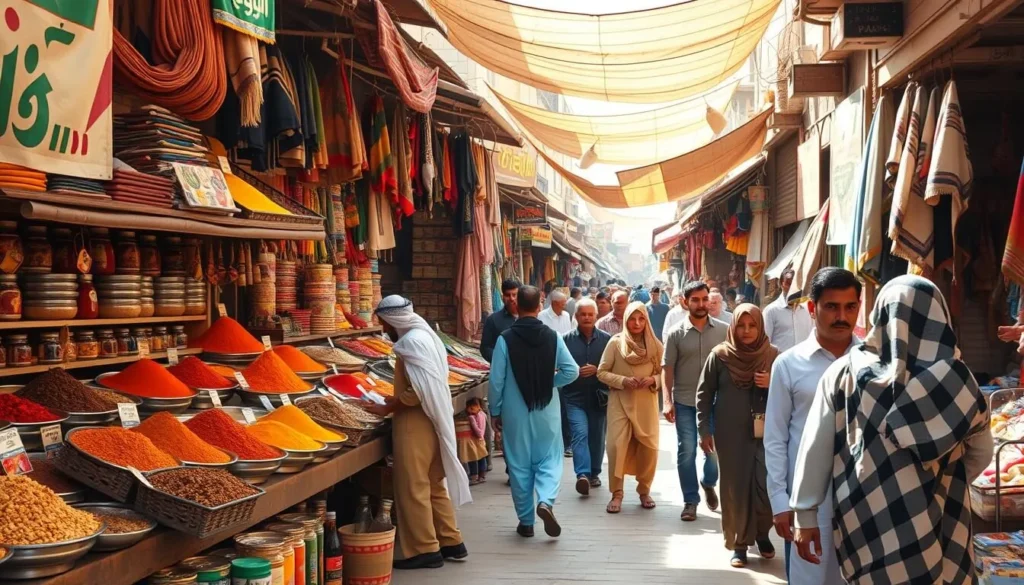
Ar-Raqqah’s vibrant markets offer a glimpse into local life and traditional commerce
The markets of Ar-Raqqah are gradually returning to their former vibrancy, offering visitors an authentic glimpse into Syrian culture and commerce. Starting from the central area near what locals call the “I Love Raqqa” sign, you can wander through a network of shops and stalls.
What to Find in the Markets
- Textiles: Syria has a long tradition of textile production, with colorful fabrics and handmade items
- Spices: Aromatic spices used in traditional Syrian cuisine
- Sweets: Local confections, including the famous ice cream from shops like بيت الكيك (Beit Al-Cake)
- Handicrafts: Traditional crafts that reflect the region’s cultural heritage
Walking through these markets offers more than shopping opportunities—it’s a chance to experience the resilience and daily life of Ar-Raqqah’s people. Vendors are often friendly and willing to share stories about their city’s history and recovery.
Local Cuisine and Dining Experiences

A traditional Syrian feast featuring local specialties from the Ar-Raqqah region
Ar-Raqqah’s cuisine reflects its location along the Euphrates River and its rich cultural heritage. The local food scene is gradually recovering, with restaurants and food stalls offering authentic Syrian flavors.
Must-Try Local Dishes
| Dish | Description |
| Grilled River Fish | Fresh fish from the Euphrates, typically seasoned with local herbs and grilled to perfection |
| Kebabs | Skewers of marinated meat (usually lamb) grilled and served with flatbread and vegetables |
| Mezze Platter | An assortment of small dishes including hummus, baba ghanoush, tabbouleh, and stuffed grape leaves |
| Baklava | Sweet pastry made of layers of filo filled with chopped nuts and sweetened with honey |
Dining in Ar-Raqqah is more than just a meal—it’s a cultural experience. Hosts are known for their generous hospitality, and meals are often social events that bring people together.
Accommodation Options in Ar-Raqqah

Accommodation options in Ar-Raqqah are limited but gradually improving as tourism returns
Accommodation in Ar-Raqqah is currently limited but slowly developing as the city recovers. Options range from basic guesthouses to a few mid-range hotels. Many visitors choose to stay in nearby cities and make day trips to Ar-Raqqah.
Available Accommodation Types
Local Hotels
A few hotels operate in central Ar-Raqqah, offering basic but clean accommodations. Facilities like Al-Naeem Hotel and Euphrates Hotel provide air conditioning, Wi-Fi, and restaurant services, though amenities may be limited compared to international standards.
Guesthouses
More affordable options include local guesthouses, which often provide a more authentic experience but with simpler facilities. These can be a good choice for travelers on a budget who want to experience local hospitality.
Nearby Cities
Some visitors prefer to base themselves in more developed cities like Aleppo or Deir ez-Zor, making day trips to Ar-Raqqah. This option provides more reliable accommodation infrastructure.
Booking Tip: Arrange accommodation through a reputable tour operator who can confirm availability and conditions. Direct online booking may not always be reliable for this region.
Practical Travel Tips for Ar-Raqqah

Local guidance and proper preparation are essential for navigating Ar-Raqqah effectively
Money & Banking
- Bring cash (USD or EUR) as ATMs are unreliable
- Exchange money through official channels
- Keep small denominations for markets and tips
- Credit cards are rarely accepted
Communication
- Internet access is limited and may be unreliable
- Consider purchasing a local SIM card
- Download offline maps before your trip
- Learn basic Arabic phrases to facilitate interactions
Cultural Etiquette
- Dress Modestly: Both men and women should cover shoulders and knees; women should consider bringing a scarf
- Photography: Always ask permission before photographing people or sensitive areas
- Greetings: A handshake is common, though some may place their hand over their heart instead
- Religious Respect: Remove shoes when entering mosques and religious sites
Map of Ar-Raqqah showing key attractions and points of interest
Day Trips from Ar-Raqqah
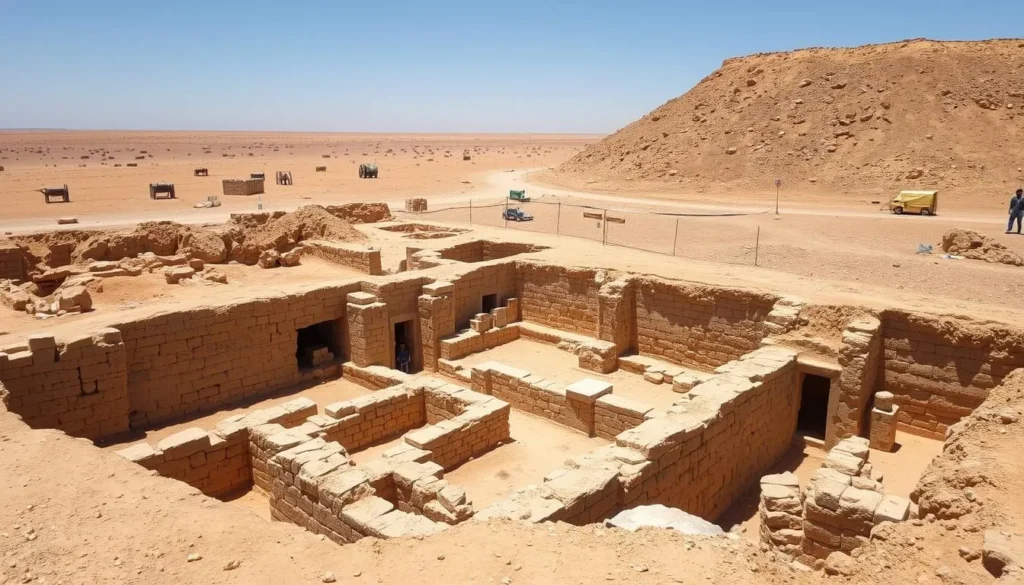
The archaeological site of Tell Bi’a offers insights into ancient Mesopotamian civilization
While exploring Ar-Raqqah itself is rewarding, several nearby attractions make excellent day trips that provide additional historical and cultural context to your visit.
Tell Bi’a
This archaeological site reveals the ancient Mesopotamian world through ongoing excavations. Located near Ar-Raqqah, it provides fascinating insights into the region’s distant past.
Resafa
About 40 km south of Ar-Raqqah, these impressive Byzantine ruins include a well-preserved basilica and city walls. The site was an important pilgrimage center in the early Christian era.
Halabiye and Zalabiye
These twin fortresses along the Euphrates River were built during the Byzantine period to guard against Persian invasions. Their dramatic setting on the riverbanks makes them particularly photogenic.
These excursions are best arranged through local guides or tour operators who can handle transportation and necessary permissions. They provide a broader understanding of the historical significance of the Euphrates Valley region.
Conclusion: The Resilient Spirit of Ar-Raqqah

Ar-Raqqah at sunset—a city of contrasts where ancient history meets modern resilience
Visiting Ar-Raqqah offers a unique opportunity to witness both the rich historical legacy of one of the world’s oldest civilizations and the remarkable resilience of its people. From ancient Abbasid ruins to the timeless flow of the Euphrates River, the city presents a profound journey through time.
While travel to Ar-Raqqah requires careful planning and awareness of safety considerations, those who make the journey will be rewarded with authentic experiences far from typical tourist routes. The warm hospitality of locals, the fascinating historical sites, and the sense of witnessing a city’s rebirth make it a truly memorable destination.
As Ar-Raqqah continues its recovery and gradual return to the travel map, visitors play an important role in supporting local communities and preserving cultural heritage. With proper preparation and respect for local customs, your journey to this ancient Syrian city can be both enlightening and meaningful.

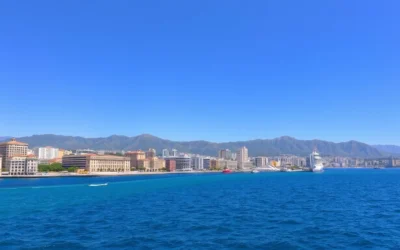

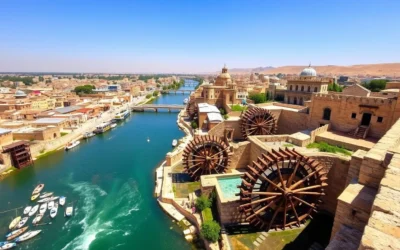
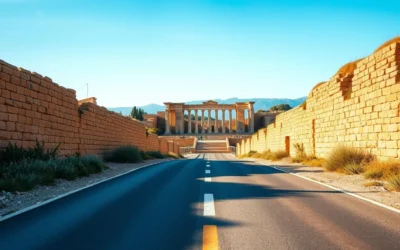
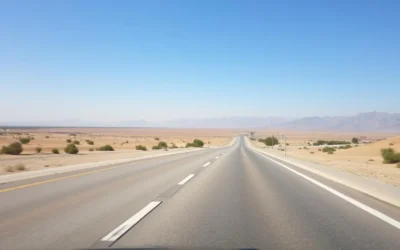
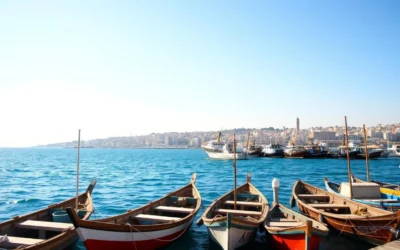
0 Comments